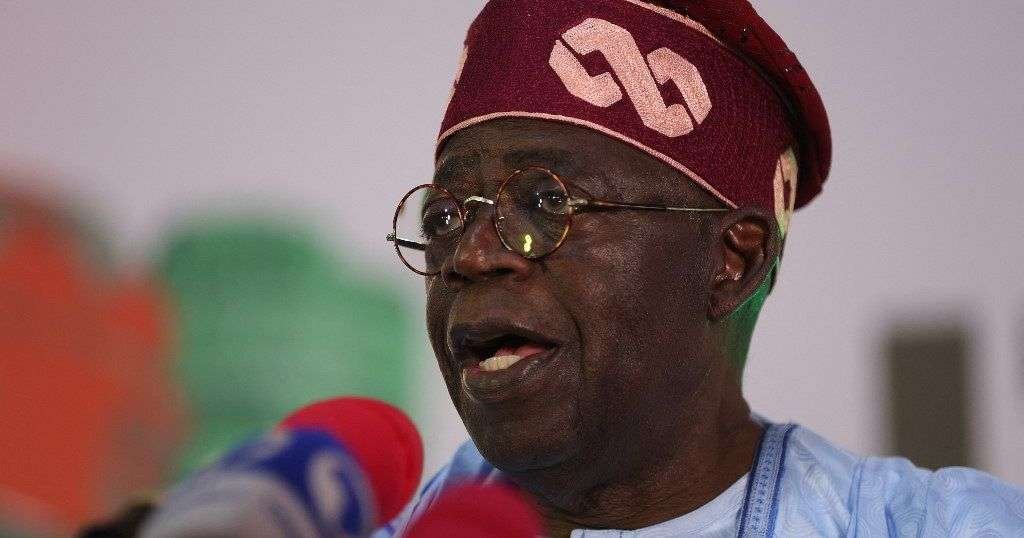Abuja, Nigeria – (African Boulevard News) – Nigeria’s President Bola Tinubu has urged Nigerians to be patient and understand the necessary sacrifices needed for the country’s future progress, following the removal of fuel subsidies, which has led to a spike in fuel prices. The move by the government has caused widespread protests by Nigerians, who have been hit hard by the rising cost of commodities.
Despite the public outcry, President Tinubu defended the move in a statement issued on Monday. He urged Nigerians to “remain calm” and promised that the government would use the saved funds to engage in more infrastructure projects that would benefit the country in the long run.
President Tinubu stated that the fuel subsidy regime had become unsustainable and was no longer benefiting ordinary Nigerians. “We cannot continue to rely on a system that is inefficient and wasteful. We need to make tough choices now so that future generations will not suffer,” he said.
The Nigerian government had spent billions of dollars on subsidies for fuel, which had been plagued by corruption and inefficiencies. The subsidy scheme had led to the enrichment of a few individuals and companies rather than benefiting the masses.
The removal of the subsidy resulted in an immediate increase in fuel prices, triggering protests across the country. Many Nigerians are struggling to make ends meet, and the increase has led to a rise in the prices of goods and services across the board.
However, industry experts have supported the government’s decision to remove the subsidy. “The subsidy regime was always a bad idea. It was corrupt and inefficient, and it did not benefit the people it was meant to help. Removing the subsidy is a painful but necessary step towards creating a more sustainable and equitable economy in Nigeria,” said Dr. Olu Akinboboye, an economist.
Despite the backlash, President Tinubu has remained resolute in his decision to remove the subsidy, calling on Nigerians to be patient and understand that the move was necessary for the country’s future progress.
The government has promised to use the saved funds to invest in infrastructure projects such as roads, bridges, and hospitals that would benefit Nigerians in the long run. The government has also promised to put measures in place to cushion the effect of the subsidy removal on the most vulnerable in society.
In conclusion, Nigerians have been urged to show patience and support the government’s efforts to create a more sustainable economy. While the immediate effects of the subsidy removal may be painful, the long-term benefits would be worth it. The government is expected to engage in more dialogue with Nigerians to bring them onboard with its plans for the future.

